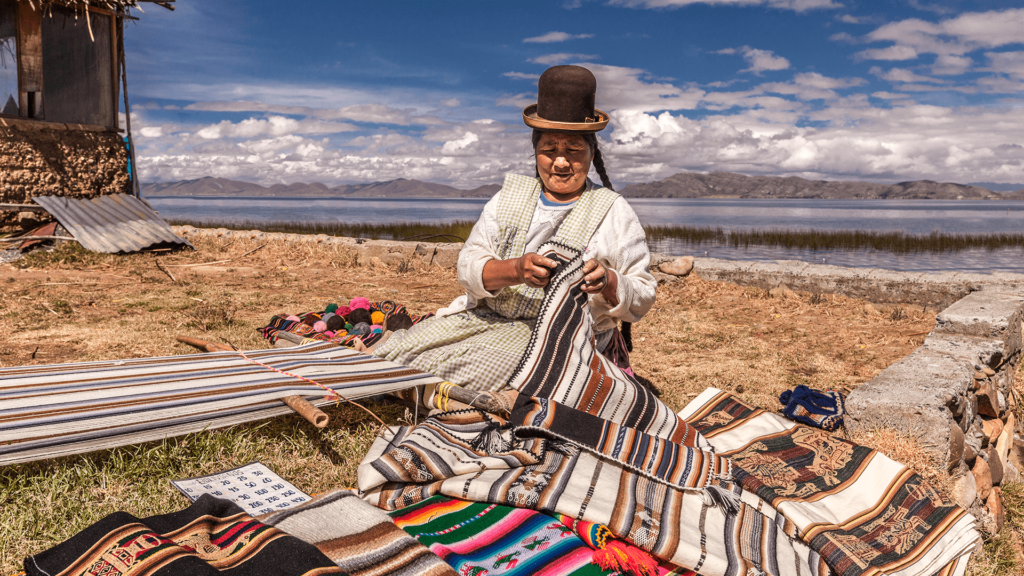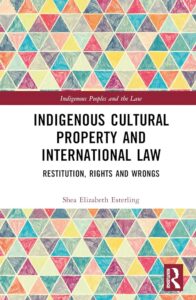


We’re excited to share the final blog in our Fourth World Journal: Volume 24, Winter Issue series! In this issue, Martha L. Schmidt, CWIS Board Member, reviews Elizabeth Esterling’s monograph Indigenous Cultural Property and International Law: Restitution, Rights, and Wrongs. The book, published in 2023, explores the opportunities and challenges that international humanitarian law poses for Indigenous communities. Perhaps the most important aspect of Sterling’s text and Schmidt’s review is the concept of essentialism and its pitfalls. In other words, by using legal language like “Indigenous Peoples,” we risk grouping the World’s 5,000 Indigenous Nations into a single category.
The article follows the common theme of self-determination woven throughout this issue of the journal. After approaching Indigenous Sovereignty through environmental, cultural, and national lenses, Schmidt’s legal expertise binds our issue together using an international lens.

BOOK REVIEW
Indigenous Cultural Property and International Law: Restitution, Rights and Wrongs
By Shea Elizabeth Esterling
Abstract
This review of Elizabeth Esterling’s monograph Indigenous Cultural Property and International Law: Restitution, Rights and Wrongs, emphasizes the complexities of cultural property restitution rights under International Law. The article examines the language of customary international law, expanding on Esterling’s analysis of UNDRIP (United Nations Declaration on the Rights of Indigenous Peoples) with a comparative analysis of ICRIN (International Covenant on the Rights of the United Nations. Following Esterling’s use of textual, purposive, and contextual lenses, particular attention is given to Article 11 of UNDRIP in relation to paragraph 11 of ICRIN. The legal language surrounding culture and its relationship to territory is significant in these texts. Even under these frameworks, the self-determination of Indigenous peoples has been historically minimized and complicated by the formation of international legal codes. Human rights discourse too often becomes an obstacle to indigenous rights, given the pitfalls of essentialism as a political strategy.
About the author:

Martha L. Schmidt holds law degrees from the University of Washington (LL.M., Law and Marine Affairs) and University of Wisconsin (J.D.) and a Master’s degree in International Administration from the School for International Training. She is currently a Board director of the Center for World Indigenous Studies, a member of the Task Force of the Monique and Roland Weyl People’s Academy of International Law, and a co-chair of the Human Rights Framework Project of the National Lawyers Guild (NLG). For more than a decade, she has been involved with groups in the US working on the human right to health, particularly as an educator and strategist.
Get full access to this article and the latest issue of the Fourth World Journal.
The library is dedicated to the memory of Secwepemc Chief George Manuel (1921-1989), to the nations of the Fourth World and to the elders and generations to come.
access here